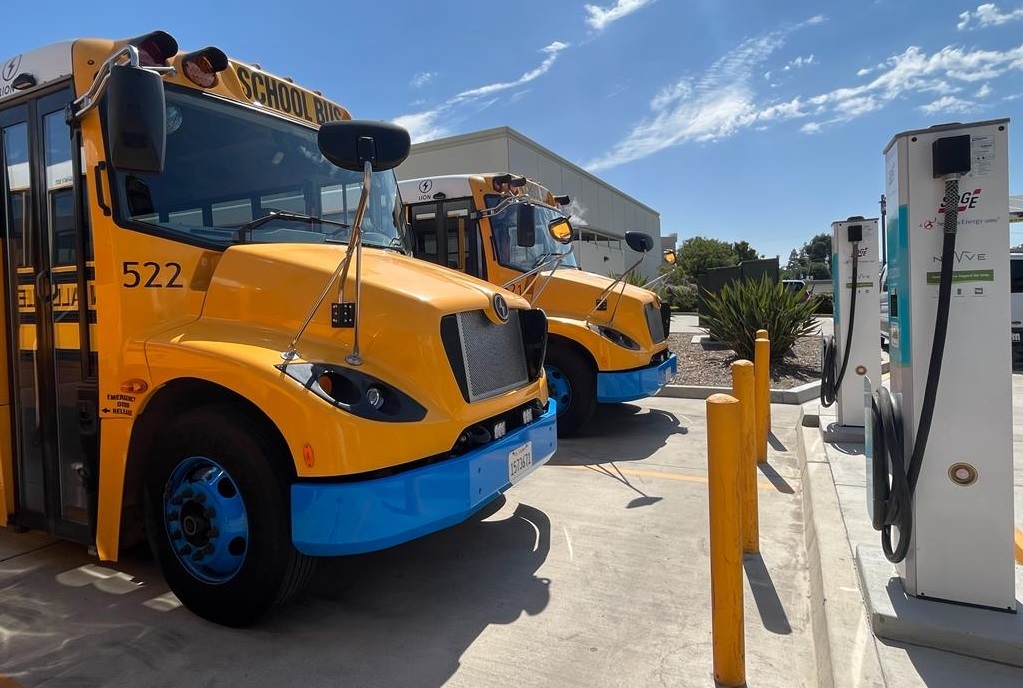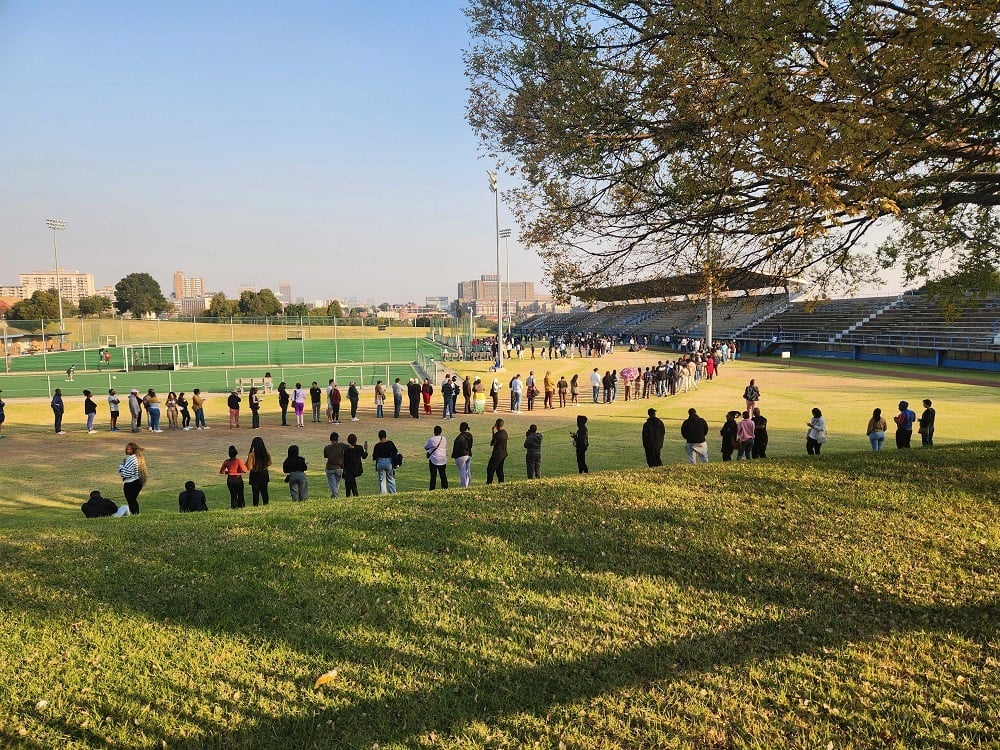
Electric school busses lined up next to their charging stations in El Cajon, California.
- Thirty-nine electric buses are expected to hit the streets of Tshwane and eThekwini in the coming months.
- The pilot project has been made possible through US$4.7 billion in funding the Development Bank of Southern Africa secured from the Global Environmental Facility.
- The funding will also go towards the rollout of charging infrastructure.
- For climate change news and analysis, go to News24 Climate Future.
Thirty-nine new electric buses are set to hit the streets of Tshwane and eThekwini by the end of 2025.
This is part of a pilot project initiated by the Development Bank of Southern Africa (DBSA).
The development finance institution had secured US$4.7 billion (R89 billion) in funding from the Global Environmental Facility – a multilateral fund that provides grants, blended finance, and policy support to address climate change, biodiversity loss and pollution, among other environmental priorities.
The funding will go towards purchasing the buses and rolling out charging infrastructure.
The SA National Energy Development Institute (SANEDI) was appointed by the DBSA as the project’s implementing agent.
“Our objective with this project is to pave the way for the country to shift to electric mobility in the near future,” said Tebogo Snyer, the project manager for SANEDI’s cleaner mobility programme.
READ | Volkswagen and rivals plug away at solid-state battery puzzle
Twenty buses will be allocated to Tshwane and eThekwini will receive 19.
“In both cities, electricity infrastructure will be upgraded and charging facilities installed. The project will be implemented over the period of five years with half the buses being commissioned in the first two years, and the rest later on,” a statement read.
Snyer said over the course of the pilot the feasibility of the project would be tested, adding:
During this time, we will demonstrate the technical, operational, legal, economic and other feasibility factors, and bed down the specifications of the ecosystem needed to support electric buses in South Africa.
The first set of buses are expected to be available in 18 to 24 months – during this time, infrastructure will be developed, and drivers will be trained on how to operate them.
Among the selling points was that it would reduce emissions in the transport sector and give South Africa an alternative to imported diesel, SANEDI said.
READ | SEE | This first-of-its-kind electric SA minibus taxi used to be powered by petrol
Snyer noted switching to electric vehicles would add an additional load or demand on the national grid.
But the impact could be managed with planning, such as ensuring fleets were charged during off-peak periods, he added.
“We want to prepare South Africa for the future… When costs start to come down, local municipalities should be ready to implement the technology that will improve public transport while reducing its environmental impact,” Snyer said.






Recent Comments